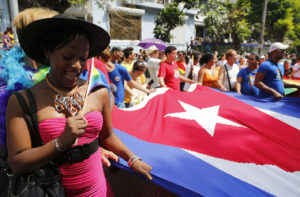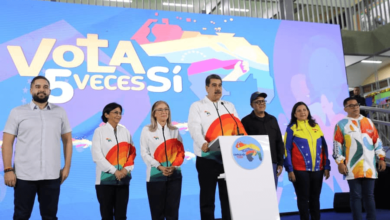
In 1973, as the result of decades of political organizing, the LGBTQ community and its allies pressured the American Psychiatric Association to declassify homosexuality as a mental disorder, which the U.S. psychiatric community did very reluctantly. Prior to this, a person could be “diagnosed” as homosexual (technically “mentally ill”), and thereby locked up against their will, often indefinitely. Once inside a mental institution, they were denied legal representation, meaning, they were often never released and were victims of violence at the hands of homophobic guards and facility staff. People held under these conditions often opted to be chemically or surgically lobotomized, in order to be “cured” of what was never, in fact, a mental disorder.
This was the reality for people inside the U.S. and in most of the world who self-identify as LGBTQ and non-gender conforming. It took LGBTQ organizers and allies another 20 years to convince the World Health Organization to remove homosexuality from its list of mental illnesses, which it did on May 17, 1990.
In 2005, LGBTQ organizers adopted May 17 as the “International Day Against Homophobia,” as a platform to agitate for LGBTQ equality globally and educate the working class about the daily violence and discrimination currently faced by lesbian, gay, bisexual, transgender and all those who do not self- identify as “heterosexual.” Since then, transphobia and biphobia have been added to the event’s title.
This year 132 countries celebrated May 17, with educational forums, organizing strategies and other public events.
Cuba celebrated its ninth year of “Día Internacional contra la Homofobia y la Transfobia,” which ran from May 10-21 in cities across the country, culminating in the country’s largest Pride parade ever. Thousands of people took to the streets, led by the daughter of Cuba’s President, Mariela Castro, as they chanted, “Socialism yes, homophobia no,” “Down with homophobia,” and “Down with transphobia.”
Venezuela’s National Assembly celebrated this year by officially recognizing May 17 as a “Day Against Homophobia, Transphobia and Biphobia.” The Venezuelan Foundation of Support for Sexual Diversity held its fourth annual “Walk Against Homophobia and Transphobia” in the state capital, Caracas, and screened a film about sexual diversity. An exhibit featuring 200 works of art relating to the LGBTQ struggle by 70 artists from Caracas, Maracay, Valencia, Barquisimeto, Maracaibo and Mérida was held at The National Art Gallery.
Last year, Venezuela held an educational congress, in part to announce the country would adopt May 17 as an official holiday. It was attended by its Vice-President of the National Assembly, Elvis Amoroso. The Congress received state and federal funding and featured key government officials who came to show their support for their country’s LGBTQ community. The Vice-Minister of Sports called for more LGBTQ athletes to represent Venezuela. The Venezuelan Assembly ended their May 17 congress with a program proposing increased public awareness campaigns, anti-bullying initiatives in schools, and penalties for media outlets broadcasting homophobic, misogynistic, or heterosexist messages.
Other countries used May 17 to publicly expand legal protections and civil rights for LGBTQ people. Among these were, Mexico’s President Pena Nieto, who announced the legalization of same-sex marriage in his country. On May 16, Canadian Prime Minister Justin Trudeau said, “I am proud to announce that tomorrow, on the International Day Against Homophobia and Transphobia, we will be tabling a bill in the House of Commons to ensure the full protection of transgender people.”






